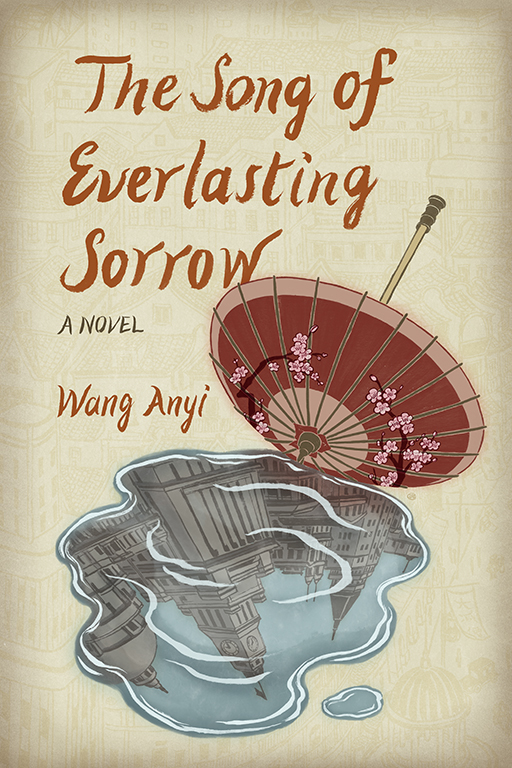by Wang Anyi
Set in post-World War II Shanghai, "The Song of Everlasting Sorrow" follows the adventures of Wang Qiyao, a girl born of the "longtong," the crowded, labyrinthine alleys of Shanghai's working-class neighborhoods.
Infatuated with the glitz and glamour of 1940s Hollywood, Wang Qiyao seeks fame in the Miss Shanghai beauty pageant, and this fleeting moment of stardom becomes the pinnacle of her life. During the next four decades, Wang Qiyao indulges in the decadent pleasures of pre-liberation Shanghai, secretly playing mahjong during the antirightist Movement and exchanging lovers on the eve of the Cultural Revolution. Surviving the vicissitudes of modern Chinese history, Wang Qiyao emerges in the 1980s as a purveyor of "old Shanghai"--a living incarnation of a new, commodified nostalgia that prizes splendor and sophistication--only to become embroiled in a tragedy that echoes the pulpy Hollywood noirs of her youth.
From the violent persecution of communism to the liberalism and openness of the age of reform, this sorrowful tale of old China versus new, of perseverance in the face of adversity, is a timeless rendering of our never-ending quest for transformation and beauty.
The story follows a Shanghai beauty name Wang Qiyao and her life of everlasting sorrow. Even though her life is quite shit, I could not sympathize with her. I think it's all because of the first part of the novel, which cemented my belief of her as a duplicitous bitch. What language! This is what I had to suppress while writing that paper. In the first part, she exemplifies the humblebrag. "I am so beautiful, I know I am beautiful, I have to be a little more modest to let the other girls have a chance, this friend that is not as pretty as me (I call this friend the charity case) highlights my perfection, this other friend I dumped the other for is so hopeless, I'll just go through with the pageant since everyone is putting in so much effort, etc." There is no agency. She claims to be a modern woman with agency, supports equal rights, and be such a kind person, but her actions contradict her. And don't even get me started on her spawn. Makes my blood boil that one. It's because of this she-devil that I somewhat begin to sympathize with Qiyao. Be nice to your mother.
Hate the characterization, but the writing is superb. It's brilliant because the author has dropped hints that you wouldn't pick up on until you reread the novel, or in my case, read the spoilers. The way things start to make sense and connect is quite the experience. The author illustrates three different time periods, develops relationships between characters, and adds drama (sometimes the drama is too much). The author has these great spiels about feminism/being a woman, love, and life. Sometimes the descriptions are such a drag to trudge through, but I can't deny the writing is quite beautiful. Here are some lines that stood out to me:



This is why it can be so difficult to read during a slump. When you do not feel like reading at all, any book or story will not be appealing to you due to the circumstances. This is one reason I stopped taking English courses when I got to university, because I disliked being forced to read a book I did not choose. Usually, I ended up disliking it. The writing in this particular book does sound beautiful, though.
ReplyDelete